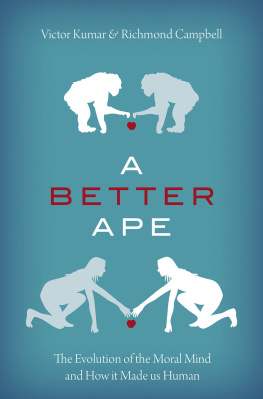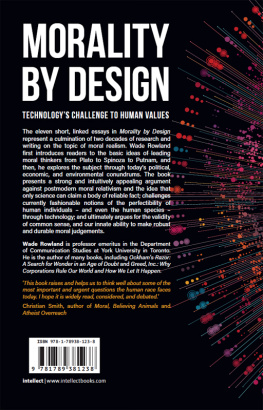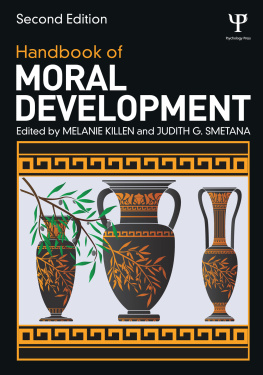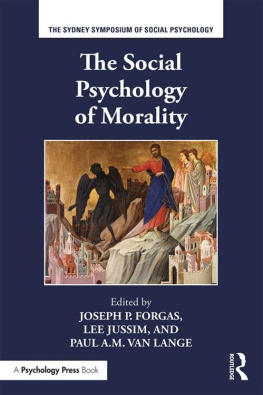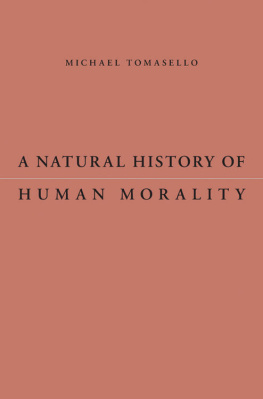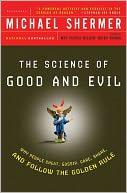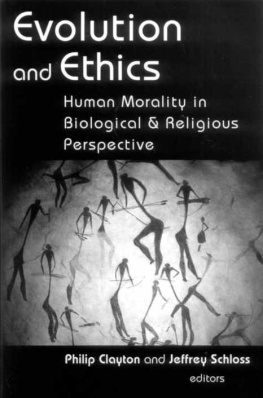Victor Kumar - A Better Ape: The Evolution of the Moral Mind and How it Made us Human
Here you can read online Victor Kumar - A Better Ape: The Evolution of the Moral Mind and How it Made us Human full text of the book (entire story) in english for free. Download pdf and epub, get meaning, cover and reviews about this ebook. year: 2022, publisher: Oxford University Press, genre: Religion. Description of the work, (preface) as well as reviews are available. Best literature library LitArk.com created for fans of good reading and offers a wide selection of genres:
Romance novel
Science fiction
Adventure
Detective
Science
History
Home and family
Prose
Art
Politics
Computer
Non-fiction
Religion
Business
Children
Humor
Choose a favorite category and find really read worthwhile books. Enjoy immersion in the world of imagination, feel the emotions of the characters or learn something new for yourself, make an fascinating discovery.
- Book:A Better Ape: The Evolution of the Moral Mind and How it Made us Human
- Author:
- Publisher:Oxford University Press
- Genre:
- Year:2022
- Rating:4 / 5
- Favourites:Add to favourites
- Your mark:
A Better Ape: The Evolution of the Moral Mind and How it Made us Human: summary, description and annotation
We offer to read an annotation, description, summary or preface (depends on what the author of the book "A Better Ape: The Evolution of the Moral Mind and How it Made us Human" wrote himself). If you haven't found the necessary information about the book — write in the comments, we will try to find it.
In A Better Ape, Victor Kumar and Richmond Campbell draw on the latest research in the biological and social sciences to explain the key role that morality has played in human evolution. They explore the moral traits that humans share with chimpanzees; how a more complex moral mind enabled Homo
sapiens to arise and out-compete other human species; and the place of morality alongside historic revolutions in technology and social organization. Throughout the book, Kumar and Campbell argue that morality co-evolved with intelligence and complex sociality. Morality prevents societal collapse
and enables complex knowledge.
After unearthing the ancient origins of human morality, Kumar and Campbell use evolutionary theory to deliver profound insights about how to advance moral progress and resist moral regress, such as reducing animal suffering on industrial farms; capitalizing on the recent revolution in gay rights to
foster a nascent revolution in transgender rights; opposing intersectional inequality that impacts women and people of color in lower socioeconomic classes; and addressing major problems of global inequality, especially impending crises of injustice caused by anthropogenic climate change.
Understanding how we evolved--and how we continue to evolve--can help us become a better ape.
Victor Kumar: author's other books
Who wrote A Better Ape: The Evolution of the Moral Mind and How it Made us Human? Find out the surname, the name of the author of the book and a list of all author's works by series.

